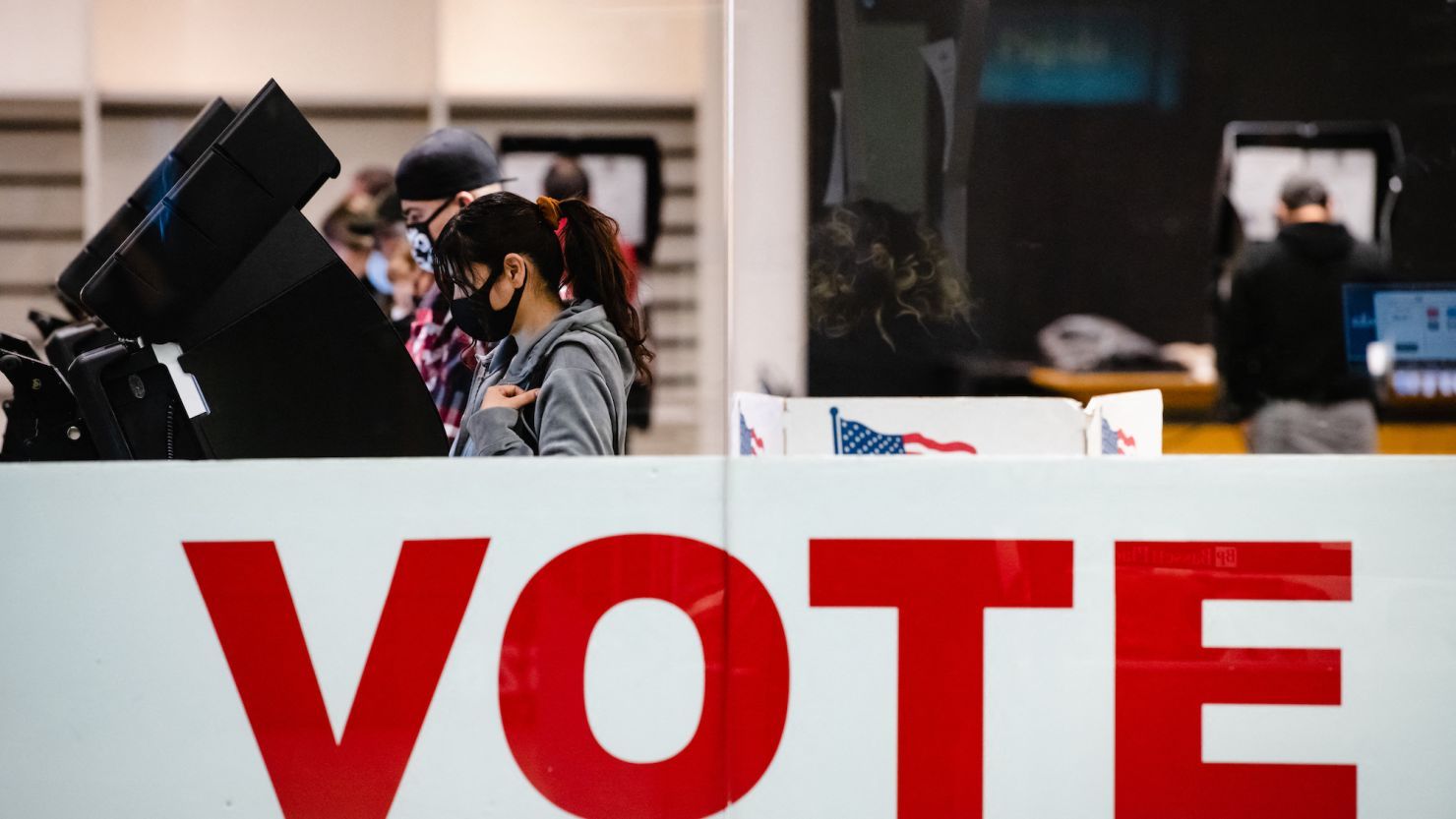 On November 3, 2020, a woman voted in Bassett Square Shopping Center in El Paso, Texas. Justin Hamel/AFP/Getty Images new york CNN
On November 3, 2020, a woman voted in Bassett Square Shopping Center in El Paso, Texas. Justin Hamel/AFP/Getty Images new york CNN A recent analysis by TIAA, a retirement planning company, studied the performance of a medium-risk portfolio with 60% stocks and 40% bonds in all presidential election years since 1928. It was found that the rate of return was negative in only four years: in 1932 (down 1.4%); 1940 (down 4.7%); 2000 (down 0.8%); Compared with 2008, it decreased by 20.1%.
Not surprisingly, these four presidential election years took place during the earthquake: the Great Depression. World War II. The bursting of the technology bubble. And the real estate and financial crisis that caused the Great Depression.
However, over time, these negative returns did not affect the long-term average performance. TIAA found that in the 24 presidential election years since 1928, the average annual return rate of 60/40 portfolio was 8.7%-only slightly higher than the average return rate of 8.5% of the same portfolio in all non-election years in the same period.
"After a long time, it will be eliminated," said Niladri Mukherjee, chief investment officer of TIAA.
Of course, few investors' portfolios can last for such a long time, and even fewer investors can always maintain the same stock-bond ratio.
But even if you focus on a shorter time frame and only focus on stocks, the same general trend seems to hold.
According to LPL Financial Company, since 1952, the S&P 500 index alone has created an average return of 7% in the presidential election year. If this proportion is limited to the presidential election year when the current president is running for re-election, the average proportion will jump to 12.2%.
Jeff Buchbinder, chief equity strategist of LPL, wrote in a blog post on his company's analysis in December 2023: "We believe that part of the reason for this model is that the current president introduced fiscal stimulus and growth-promoting regulatory policies before the election to avoid potential recession and encourage employment growth."
Market performance is not just a question of who becomes president.
What about this election year? Whether the winner is President Joe Biden or former President Donald Trump, the short-term market reaction is hard to predict. Mukherjee said: "Election years are more volatile.
 Freeland, Michigan-May 1: Republican presidential candidate and former US President Donald Trump pointed out at a rally in Avflight Saginaw, freeland, Michigan on May 1, 2024. Saginaw County is considered to be a swing county in Michigan and the site of Trump's campaign in September 2020. (Image courtesy of Nic Antaya/Getty Images) Related articles of Nic Antaya/Getty Images Trump took a day off in court, which gave full play to his strongman ambition.
Freeland, Michigan-May 1: Republican presidential candidate and former US President Donald Trump pointed out at a rally in Avflight Saginaw, freeland, Michigan on May 1, 2024. Saginaw County is considered to be a swing county in Michigan and the site of Trump's campaign in September 2020. (Image courtesy of Nic Antaya/Getty Images) Related articles of Nic Antaya/Getty Images Trump took a day off in court, which gave full play to his strongman ambition. The long-term consequences of the market are even more difficult to estimate.
Mukherjee said that although past performance does not guarantee future results, if history can be used as a guide, investors will consider future decisions according to the fundamentals of the United States and the rest of the world and the risk of geopolitical turmoil.
In other words, he pointed out that economic growth, corporate profits, inflation, living standards and productivity will remain the most important.
Market analysts at Bank of America expressed similar views in a report at the end of last year. They wrote: "Compared with the election results, the relationship between economic and inflation trends and market returns is stronger and more consistent."
More importantly, how the Senate and the House of Representatives are formed will play an important role in how to realize policies.
Mukherjee said: "When it comes to fiscal policy and real changes that can be implemented, the composition of the Congress is really important." "Although (presidential) candidates say a lot, they may not be able to implement it."
What does all this mean for ordinary investors?
Generally speaking, no one can consistently and successfully grasp the market opportunity or predict the future. Therefore, it has always been a wise suggestion to fully diversify investment in different asset classes and industries, and at the same time to invest the funds needed in the next few years very conservatively.
Therefore, if you are anxious about the upcoming election-or just anxious that some American and global markets will react in one way or another according to the winner-Mukherjee advises not to make investment decisions based on your predictions. Instead, he suggests that you consult a financial adviser to ensure that your current allocation of funds is in line with your time frame, risk tolerance and goals. Or, if they have already done so, just wait and see.
Mukherjee said: "If you are not going to make changes in a non-election year, you should not do so in a presidential election year."
According to the strong feeling of psychologist Daniel crosby, you can also consider some useful suggestions on how to avoid investing. He wrote Behavioral Investors.
For example, crosby warns that if your fears are activated, you may panic and sell at the wrong time. Or, if you are in high spirits, your optimism may distort your investment risk level.